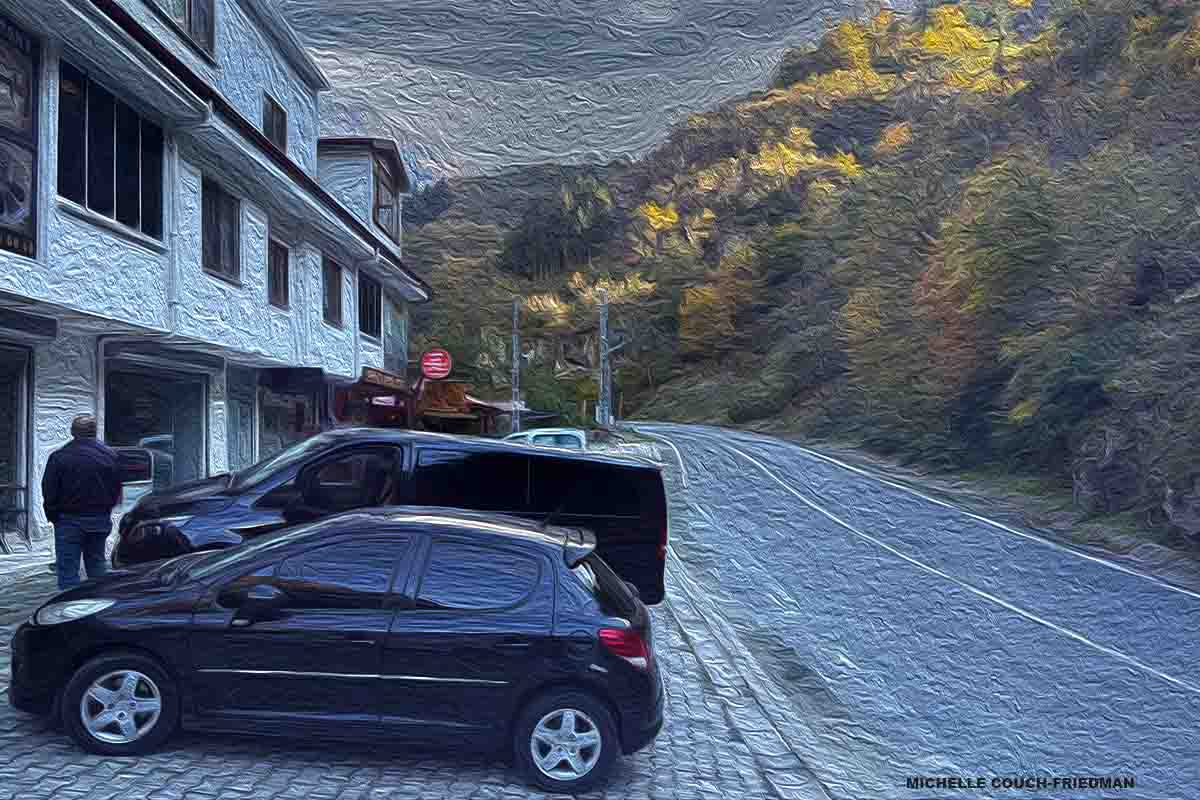Published: Updated:
Expensive car rental mistakes are easily avoidable with just a little research and preparation. Yet week after week, the Consumer Rescue case files show that many car rental customers do neither. By the time I hear from these blindsided travelers, that oversight has led to hefty fees and other unpleasant repercussions.
As we drive into 2026, here are the most common mistakes car rental customers make and what you can do to avoid them.

1. Making a rental car reservation based solely on price
Bargain-hunting car rental customers beware: It is unwise to book a vehicle purely based on the lowest cost option. In fact, travelers should be wary of agencies advertising the cheapest rates — especially if they’re far below all the other offerings in the area.
In my work, I’ve observed a pattern that would indicate that some independently owned and operated outlets pad their bottom line by regularly hitting unsuspecting customers for repairs of non-existent or pre-existing damage. So that great deal you’re eyeing might just be the lure to hook you into a rental car scam.
Related: Ace Rent a Car charged a customer $1,400 for damage it already knew about
Keep in mind that most car rental locations are independently owned and operated franchises. That means the brand on the marquee is just lending its name to the outlet. Potential customers shouldn’t allow the name on the shingle to lull them into a false sense of security that the branch is reputable.
Before booking an unusually low rate, check reviews of the specific car rental location and read through all the terms and conditions. Use sites such as Yelp, TripAdvisor, and Trustpilot, and search the name of the car rental brand plus the specific branch.
2. Not reviewing the contract before leaving the location
Arriving at the rental counter fatigued after a long day of travel often leads customers to skip reading their contract. That is a mistake that can lead to serious and expensive problems later.
Remember, your rental car contract is legally binding, so you must make certain you understand it and that the details are correct — before signing. Look carefully at the dates, the rate, whether it includes unlimited mileage (not all do), the return location, taxes, and fees. Also, it’s important to know what optional services you’ve agreed to (or not).
Be aware that optional insurance products are big money makers for car rental companies. Some franchised locations automatically opt travelers into some of those products. This is particularly true in Europe. These daily charges can add hundreds of dollars to your rental. Always be sure to decline optional insurance products if you don’t want them.
3. Using the car rental company’s transponder for tolls
Another way car rental companies gouge their customers is through the “convenience” of providing toll transponders in the vehicles. However, this convenience often comes with a high daily surcharge on top of the actual tolls plus an administrative fee (read: junk fee).
Luckily, there are alternatives to this toll trap. In most cases, customers can save significant money by declining the car rental company’s transponder.
Instead, travelers should pay cash at the toll booths and get a receipt. Some highway systems, like the Illinois Tollway and EZPass, allow drivers without a transponder to freely go through all the booths without stopping. (EZPass is the system used on many toll roads in the Eastern United States.)
In some states, transponders have become unnecessary — scanners read license plates as cars pass through the interchange. By creating an online guest account, travelers can easily pay all tolls they accrue without involving the expensive middleman (the car rental company).
Alternatively, you may be able to bring your own transponder from home to use during your drive, depending on where you’re visiting. You’ll just need to bring your transponder and temporarily add the license plate of your rental car to your online account, including a start and end date.
Warning: If you don’t include the end date in your EZPass account, you’ll pay the tolls for whoever rents the car after you. (Yes, this happened to one of our readers.)
Before heading out on the roads of an unfamiliar city, it’s a good idea to research the highway system. You may be able to choose routes that avoid toll roads. But that detail won’t make a difference to the car rental agent who wants to sell you the transponder package.
4. Failing to inspect and document the condition of the rental car
Car rental customers hit with surprise rental car repair bills pour into the Consumer Rescue helpline every week at an alarming rate. Many of these travelers are certain that they didn’t cause the damage the company is asking them to pay to repair.
My investigations prove that a high percentage of these car rental customers are correct.
Related: Hit with fake car rental damage charges? Here’s how to make them go away
But a significant number of these consumers failed to document the condition of the vehicle before and after their rental. That mistake left them incredibly vulnerable to predatory locations that charge and recharge customer after customer for the same damage.
In my case files at Consumer Rescue, I have seen car rental customers face repair bills totaling thousands of dollars. These are accusations that could easily be disproven had the consumer taken just five to ten minutes at the beginning and end of the rental to properly inspect and document the vehicle’s condition.
Note: Consumer Rescue provides our readers with a free pre- and post-rental car inspection checklist. Print these documents and use them as your guide at the rental car location before you drive away with the vehicle and again when you return it.
Remember, as you memorialize the vehicle’s condition with detailed photos and videos, inside and outside, you’re building a shield to deflect fraudulent car rental damage charges. The better you are at inspecting that vehicle, the stronger your armor becomes.

5. Dropping the vehicle off after hours
Whenever possible, do not return a rental car after hours. Doing so opens the door to all sorts of possibilities and none of them are good for you as a consumer. Keep in mind you are completely responsible for that expensive vehicle until your contract is officially closed. You are only relieved of that responsibility when an employee logs the vehicle in — after the agency opens.
Should the car go missing, be stolen, or become damaged by a storm or vandals, you’ll be on the hook. (See: I left my car at the airport, now it’s missing. Help!)
If you absolutely must return your rental car when the branch is closed, carefully document the exact location and time you dropped off the vehicle… and hope for the best.
6. Returning the rental car to the wrong location or company
You might think that it is difficult to return a rental car to the wrong location or company. But the truth is that many customers are unfamiliar with the places they are traveling to. At many airports, car rental companies are side by side and it is surprisingly easy to turn into the neighboring agency’s lane.
Typically, car rental customers who have returned their vehicles to the wrong airport or agency have no proof of where they dropped off the car. Had they asked for a receipt, employees could have easily alerted the confused traveler that the vehicle wasn’t part of that fleet.
Related: Here’s what happens when you return your rental car to the wrong agency.
📬 Subscribe to:
Tales from Consumer Advocacy Land
Real stories. Real rescues. Real advice.
Join thousands of smart travelers and savvy consumers who already subscribe to Tales from Consumer Advocacy Land — the friendly weekly newsletter from Michelle Couch-Friedman, founder of Consumer Rescue. It's filled with helpful consumer guidance, insider tips, and links to all of our latest articles.

However, in a rush to get inside the airport, these car rental customers pull the vehicle into the return lane, put the key on the dashboard, grab their luggage, and go.
The hapless customers only discover their error when the company reports the rental car missing. This particular mistake can lead to hundreds and even thousands of dollars in recovery fees. Even worse, in some cases, companies have filed stolen car reports against the customer.
Always give yourself plenty of time to carefully return your rental car so that you can ensure you’re returning it to the right company and location. Take your post-rental photos and wait for an attendant to provide a receipt so you have proof of your return.
7. Not insuring the rental vehicle
Taking the wheel of a rental car without confirming that proper insurance is in place is by far the most devastating mistake a customer can make.
Remember, when you drive a vehicle off a rental lot, you are accepting full responsibility for it. You’re also accepting liability for anything you might damage while operating that car. It is imperative that you have insurance on your rental car.
It is surprising just how many travelers don’t confirm that they have insurance before declining the car rental company’s pricey but protective products.
Jurian Yee is one of those travelers. He took a short trip to chase the Northern Lights in Alaska, renting a car for just 24 hours.
Yee erroneously assumed that he was listed on his parents’ car insurance policy, so he declined the $25 CDW (Collision Damage Waiver) offered by the location. That was a terrible mistake — one that almost cost the young man nearly $6,000 after the branch accused him of causing significant damage to the vehicle.
It was only when he filed an unsuccessful claim that Yee learned the shocking truth: he had been driving the vehicle with no insurance. As an independent young adult living on his own, he was no longer part of his parents’ policy.
Spoiler alert: Eventually, Budget dropped the damage claim for lack of evidence, and Yee learned a valuable lesson. However, other car rental customers can’t expect the same results.
How to insure your rental car
If you do not have your own personal car insurance policy that will cover you during your rental, you have a few options.
- Purchase a third-party travel insurance policy and include a car insurance add-on option. Travel insurance companies like Allianz offer low-cost, comprehensive rental car insurance coverage for as little as $11 per day.
- Confirm whether your premium credit card benefits include car rental insurance coverage. (Note: Be careful to read the terms of use and note exclusions and geographic limitations on these policies. If you fail to follow the guidelines of this benefit you could end up with no coverage at all.)
- Purchase travel protection from your car rental company at the counter. This is typically the most expensive option, but should something go wrong, it also is the easiest route to having the problem quickly resolved.

8. Ignoring the terms of the rental contract
Car rental contracts protect the company and you, as the customer. It is super important to read through the entire document and make sure you understand it.
When you sign that contract, you’re agreeing to all the terms listed in it. If you deviate from that agreement — for instance, keeping the vehicle beyond the end of the rental or allowing someone else to drive the car — you’re in violation of the contract. That exposes you to a plethora of additional charges, getting blacklisted by the car rental company, and even, in extreme cases, having legal charges brought against you.
I recently fielded a complaint by a young man who was surprised to find himself with several hundred dollars in additional fees and a permanent placement on Enterprise’s Do Not Rent list. He earned that spot after renting a $90,000 BMW and then ignoring nearly all of the terms of his contract.
Not only did he keep the BMW past its return date by at least a week, but he also ignored the car rental company’s emails and phone calls. In addition to all that, he put a freeze on his credit card so Enterprise couldn’t charge him any fees while he was off the grid with the vehicle.
What about cruise mistakes? Here are the top ones we know of here at Consumer Rescue
The road to the Do Not Rent list is often a one-way street
When he contacted me, he hoped I might get Enterprise to accept his apology, but he also thought the local branch manager had unnecessarily made a big deal out of the situation. I had news for him that he seemed to be completely unaware of: What he had done could have led to his arrest for car theft.
Car rental customers must always understand that the vehicle they’re driving is not theirs to do with as they please. The company owns the car, and the customer is just borrowing it. If a traveler can’t or won’t abide by the contract, then they shouldn’t rent a car in the first place.
Companies are free to do business with whoever they choose. Just like cruise lines and airlines, car rental companies frequently, permanently ban problematic customers.
Not surprisingly, Enterprise reconfirmed that the young man who self-extended his rental car contract on the luxury BMW and then disappeared for a week remains on its Do Not Rent list — forever.
Related: Help! Avis billed us $8,090 after our rental car died at the gas station
The bottom line
The best defense you have against avoidable — and in some cases fraudulent — charges is to familiarize yourself with all the common pitfalls car rental customers face. And do so long before your reservation begins.
But of course, if the worst happens and you find yourself in a car rental catastrophe, Consumer Rescue is here to help you steer your way out. Send your request to our team using the button below, and we’ll investigate. Our advocacy assistance is always fast, friendly, and best of all, free! (Michelle Couch-Friedman, Chief Fiasco Fixer and founder of Consumer Rescue)




